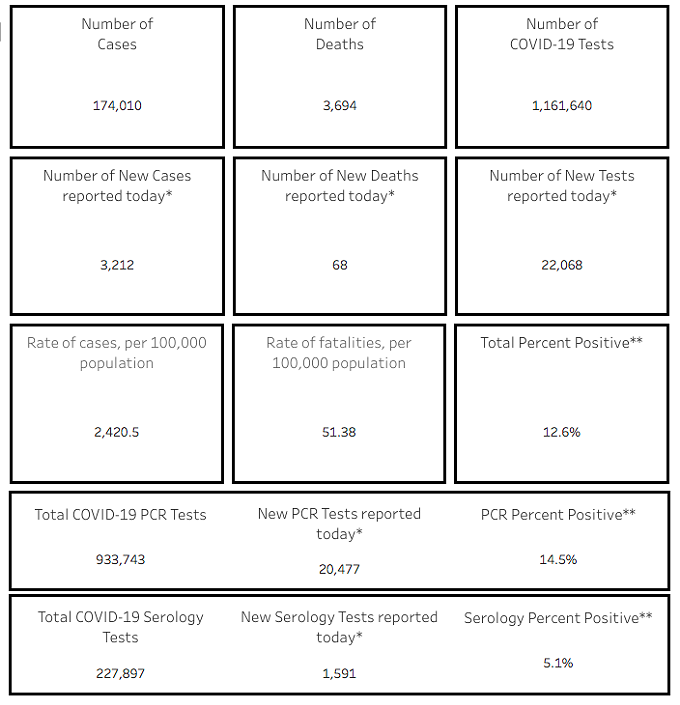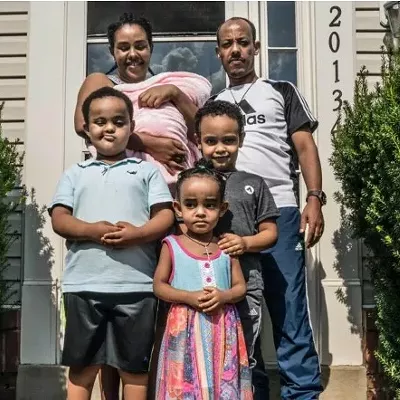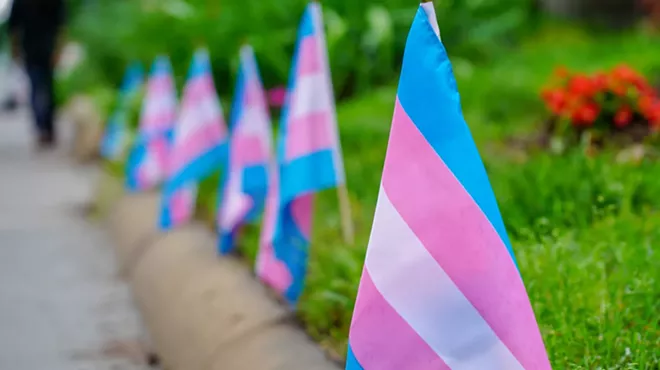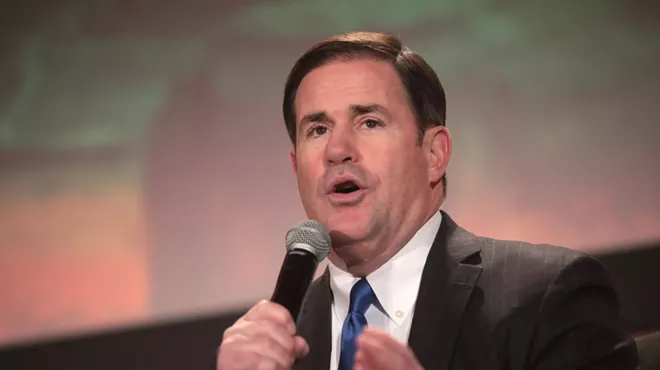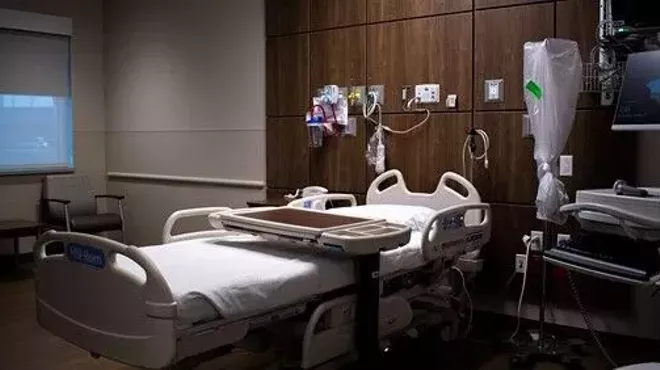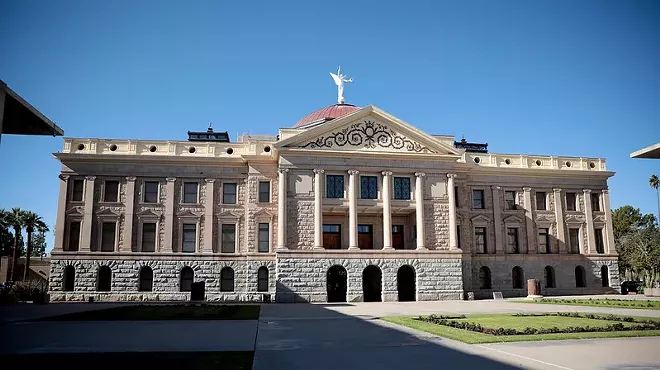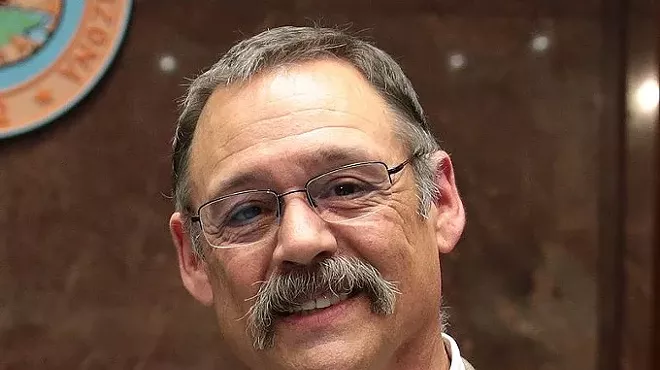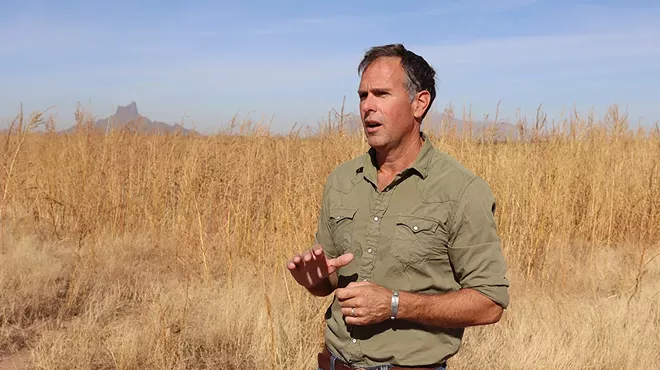Friday, July 31, 2020
Your Southern AZ COVID-19 AM Roundup for Friday, July 31: 174K Confirmed Cases in AZ; Trump Backs Away from Call To Delay in November Presidential Election; Senate Effort To Pass New Relief Package Stalls as Boosted Unemployment Benefits Expire
The total number of confirmed coronavirus cases in Arizona climbed past 174,000 as of Friday, July 31, after the state reported 3,212 new cases this morning, according to the Arizona Department of Health Services.
Pima County had seen 16,167 of the state's 174,010 confirmed cases.
A total of 3,694 people have died after contracting the virus, including 459 in Pima County.
Maricopa County had 117,293 of the state's cases.
Hospitals remain under pressure, although they report a slight decrease in the number of Arizonans hospitalized with COVID-19-related symptoms. The report shows that 2,302 COVID patients were hospitalized yesterday in the state, down from a peak of 3,517 on July 13. That’s the lowest number of hospitalized COViD patients since June 23, when 2,270 people were in hospital beds.
A total of 1,195 people visited ERs yesterday with COVID symptoms, the lowest that number has dipped since July 28, when 1,225 people sought help in ERs for COVID symptoms. That number peaked at 2,008 on July 7.
A total of 719 COVID-19 patients were in ICU beds yesterday, the lowest number since July 3, when XXX COVID patients were in ICU. The number of COVID patients in ICUs peaked at 970 on July 13.
TRAILING IN POLLS, TRUMP SAYS HE WASN'T SERIOUS ABOUT ASKING FOR DELAY IN ELECTION
As he trails Democrat Joe Biden in the polls, President Donald Trump yesterday said he wasn’t really serious about delaying the election, although he expressed concern that allowing people to mail in ballots during a pandemic would lead to massive fraud and lawsuits that could linger in the courts for years.
“Do I want to see a day change?” Trump said during his daily coronavirus briefing. “No. But I don’t want to see a crooked election.”
Trump had started the day with a tweet asking if the election should be delayed.
“With Universal Mail-In Voting (not Absentee Voting, which is good), 2020 will be the most INACCURATE & FRAUDULENT Election in history,” Trump said on Twitter this morning. “It will be a great embarrassment to the USA. Delay the Election until people can properly, securely and safely vote???”
The trial balloon was met with derision from politicians on both sides of the aisle.
HUCKELBERRY: UNSAFE TO OPEN SCHOOLS IN AUGUST
Pima County Administrator Chuck Huckelberry Tuesday said schools should not reopen for in-person instruction on Aug. 17, based on the county’s current data on COVID-19 community spread.
Huckelberry sent a letter to all Pima County public school superintendents on Tuesday, July 28, to follow up on Gov. Doug Ducey’s recent executive order, which directed all county health departments to work with local school districts to determine when it is safe to return to school campuses.
“Clearly, County public health agencies with real time information and data regarding the pandemic are in the best position to offer public health advice regarding school activities related to managing the spread of COVID-19,” Huckelberry wrote.
He stated that Pima County is not ready for schools to go back to traditional learning, citing local COVID-19 infections which are at the “highest daily amounts since the pandemic began.”
Space in local hospitals for COVID-19 patients was nearly exceeded and critical patients had to be transferred to other hospitals in the state, according to Huckelberry. He said widespread testing for COVID-19 with quick turnaround times is only just getting started.
Huckelberry said county-wide transmission rates remain above 11 percent, while the World Health Organization recommends that rates be below 5 percent prior to a reopening.
Huckelberry, Chief Medical Officer Dr. Francisco Garcia and Pima County Health Department Director Dr. Theresa Cullen believe the earliest start date for in-person instruction is after Labor Day, Sept. 7, or possibly early October.
Huckelberry said this recommendation should not prevent schools from opening facilities for “at-risk youth” as intended in Gov. Ducey’s executive order. He suggests all safety precautions be taken such as wearing face masks, doing wellness checks, observing physical distancing guidelines and sanitizing surfaces.
Due to the nature of contact sports, county health professionals are suggesting schools shift fall semester sports to the spring 2021 semester. Any extracurricular activities that can safely take place with precautions are allowed.
Huckelberry said the county is already using a data tool that consists of nine public health metrics that are color coded similarly to a traffic signal. Today, six of those nine criteria are red. He said this tool could be used in conjunction with the public health benchmarks generated by the Arizona Department of Health Services to give school districts an indication of relative risk for reopening their campuses.
A new Back to School Committee has been created by the county to bring various superintendents and principals together to agree on local standards for managing the COVID-19 crisis and school activities.
“It is very important that community trust be built regarding the safety of our public schools,” Huckelberry wrote. “As the County public health agency, we are fully prepared to support our public schools as you navigate the COVID-19 pandemic.”
Tucson Unified School District is moving forward with its plan to put all students on an online learning program taught by TUSD teachers beginning August 10 while opening schools as “learning centers” on Aug. 17 to students who need a place to go during the day. But officials plan to ask the state for a waiver so that they would only have to offer in-school accommodations to students with special needs.
The Amphi School District is moving forward with its plan to launch the school year online with in-person instruction returning when it is safe to do so, although like TUSD, it will offer spaces for students who need a place to do their studies during the day.
It’s the same with Marana Unified School District, although Marana is offering an alternative model that offers specialized online courses that are not taught by Marana teachers.
Catalina Foothills School District Superintendent Mary Kamerzell said CFSD will begin the school year with all classes taught remotely using CFSDOnline with Google Classroom as their online learning platform.
Students will participate in remote learning with an established schedule, which will allow for a “smooth transition” to in-person learning when it is determined that schools will be able to safely reopen,” Kamerzell said.
“This is such a challenging time for all of us,” she wrote. “We will do our best to be flexible, listen to your feedback, and communicate in the future about an in-person option.”
Ducey and State Superintendent of Public Instruction Kathy Hoffman announced last week that while school districts have to open up “learning centers” in schools by Aug. 17, they do not have to provide in-class instruction. Instead, the schools can open up for students who need a place to go during the day but offer all-online courses, as Tucson Unified School District announced it would do earlier this month.
Ducey said he agreed with Hoffman’s plan to use metrics regarding the spread of the virus to determine whether schools are safe to reopen. The Arizona Department of Health Services is working with education leaders to develop the standards before Aug. 7 but said county health authorities should work with the districts to determine when it is safe to open.
Hoffman had proposed using metrics rather than a calendar date to determine whether schools could reopen safely. Her suggested metrics included a downward trajectory of confirmed new cases, a decrease in positivity rates in testing, and widespread availability of tests.
Public health experts have been warning that community transmission is too widespread to safely open the schools as planned. Will Humble, executive director of the Arizona Public Health Association, said there are two main factors to consider when opening schools in the fall: mitigation measures alongside the level of community spread within a school district.
“Because we have the level of community spread that we have, I just don’t see that mitigation measures, which help but don’t eliminate transmission, are going to be adequate to make it a safe environment for teachers and schools and families,” Humble said.
MORE COVID-19 AND ANTIBODY TESTING AVAILABLE
The Pima County Health Department on Wednesday opened a second testing center . The free saliva testing for COVID-19 at the Ellie Towne Flowing Wells Community Center, 1660 W. Ruthrauff Road, requires pre-registration and is conducted by Arizona State University in partnership with the Arizona Department of Health Services.
Pima County continues to run a free COVID-19 testing site at Kino Event Center and is working on plans to open a third testing center at Udall Park on the City of Tucson’s east side, as well as a mobile test site.
To register for a test, go to pima.gov/covid19testing.
Pima County has also contracted with Maximus Health & Services, Inc. to boost contact tracing efforts in the region. Maximus is an outsourcing company that provides business support to government health agencies such as the Pima County Health Department. They will hire about 150 local residents to perform “extensive” contact tracing as directed by the health department, in order to “alert, educate and isolate” individuals who have come in close contact with a person who is COVID-19 positive. This partnership will dramatically expand its current contact tracing system, at a time when Arizona is experiencing a rapid increase in COVID-19 cases.
“One of the key components of our response to this outbreak that has been difficult to ramp us has been the hours and hours of people power it takes to do this type of work and the systems it takes to support that staff,” said Health Department Director Dr. Theresa Cullen in a statement. “We look forward to being able to quickly take advantage of the experience, capacity, and planning Maximus will be able to provide.”
Meanwhile, Pima County is one of several regions in the country where a new COVID-19 vaccine is being tested. The National Institutes of Health is conducting phase 3 trials on a vaccine co-developed by Moderna, Inc. and the National Insitute of Allergy and Infectious Diseases.
“I am hopeful that the phase 3 clinical announced will be an effective way to protect Americans from the wrath of COVID-19, and I am pleased that the National Institutes for Health has selected a diverse location like Pima County as one of the sites for this vaccine trial,” said U.S. Rep. Raúl M. Grijalva. “Latinos are being hospitalized at four times the rate of white people, and we’ve seen in communities across the country that Black, Latino, and Native individuals are more likely to contract severe cases of COVID-19 and ultimately succumb to it. These vaccine trials are an important step toward ensuring that we can quickly develop a safe, effective vaccine to stop the spread of COVID-19, keep our communities safe, and get back to some semblance of normalcy. It’s essential that diverse individuals are included in the trial so that we can ensure an appropriate response across the board.”
If you’re interested in volunteering, visit www.coronaviruspreventionnetwork.org or ClinicalTrials.gov and search identifier NCT04470427 to find a study center.
The University of Arizona and the State of Arizona have expanded their free COVID-19 antibody testing program to include 15 new categories of essential workers considered at high risk for exposure. The antibody test, developed by researchers at UA Health Sciences, determines who has been exposed to and developed an immune response against COVID-19.
In addition to healthcare workers and first responders, the following workers are eligible for antibody testing:
-Educators
-Child care workers
-Agriculture, grocery and foodservice workers
-Hospitality employees
-Solid waste collection workers
-Transportation services workers
-Members of the National Guard
More information and registration for the test is available at covid19antibodytesting.arizona.edu.
Along with the expanded testing, UA is also launching a $7.7 million yearlong study funded by the CDC to identify "patterns of COVID-19 immunity over time in previously and newly infected individuals." The research team is seeking 4,000 health care workers, first responders, and other frontline workers as participants in the study, who will participate in weekly COVID-19 surveillance and quarterly antibody testing.
DUCEY TO DC: EXTEND UNEMPLOYMENT INSURANCE
Senate Republicans rolled out a new $1 trillion federal aid package but squabbles within the GOP caucus and with the White House are making it difficult to square the details. Meanwhile, the U.S. House of Representatives passed a $3 trillion package earlier this year that will have to be merged with the Senate plan. This week, the extra $600 a week in Federal Pandemic Unemployment Compensation that out-of-work Arizonans have been receiving is set to expire.
Gov. Ducey last week asked Arizona's congressional delegation to consider a number of provisions to help Arizona in the latest coronavirus package, including an extension of extra money for people who are out of work as a result of the pandemic.
"We understand the concerns from businesses that are having difficulty rehiring employees when the government pays more in unemployment benefits compared to what they were paying their former employees before the pandemic," Ducey wrote. "We are advocating that, at a minimum, individuals who continue to be impacted by the COVID-19 pandemic, be eligible to receive at least 100% of their weekly earnings that they were making prior to government intervention in their employers’ ability to stay open. It is by no fault of their own that certain businesses have a higher risk of transmission of COVID-19 and therefore are being required to close by the government, and we would advocate that those individuals continue to have extra support from the FPUC."
Ducey also asked the federal government to provide more money to Arizona's unemployment insurance fund; extend the December deadline for the state's tribes to spend their pandemic aid dollars; more funding for a program that helps low-income Arizonans pay utility bills that climb in the summer thanks to triple-digit temperatures; and special liability protection to shield healthcare workers, businesses and schools from lawsuits related to COVID-19.
The headline and a subhead on this post have been corrected because they were inaccurate.
Pima County had seen 16,167 of the state's 174,010 confirmed cases.
A total of 3,694 people have died after contracting the virus, including 459 in Pima County.
Maricopa County had 117,293 of the state's cases.
Hospitals remain under pressure, although they report a slight decrease in the number of Arizonans hospitalized with COVID-19-related symptoms. The report shows that 2,302 COVID patients were hospitalized yesterday in the state, down from a peak of 3,517 on July 13. That’s the lowest number of hospitalized COViD patients since June 23, when 2,270 people were in hospital beds.
A total of 1,195 people visited ERs yesterday with COVID symptoms, the lowest that number has dipped since July 28, when 1,225 people sought help in ERs for COVID symptoms. That number peaked at 2,008 on July 7.
A total of 719 COVID-19 patients were in ICU beds yesterday, the lowest number since July 3, when XXX COVID patients were in ICU. The number of COVID patients in ICUs peaked at 970 on July 13.
TRAILING IN POLLS, TRUMP SAYS HE WASN'T SERIOUS ABOUT ASKING FOR DELAY IN ELECTION
As he trails Democrat Joe Biden in the polls, President Donald Trump yesterday said he wasn’t really serious about delaying the election, although he expressed concern that allowing people to mail in ballots during a pandemic would lead to massive fraud and lawsuits that could linger in the courts for years.
“Do I want to see a day change?” Trump said during his daily coronavirus briefing. “No. But I don’t want to see a crooked election.”
Trump had started the day with a tweet asking if the election should be delayed.
“With Universal Mail-In Voting (not Absentee Voting, which is good), 2020 will be the most INACCURATE & FRAUDULENT Election in history,” Trump said on Twitter this morning. “It will be a great embarrassment to the USA. Delay the Election until people can properly, securely and safely vote???”
The trial balloon was met with derision from politicians on both sides of the aisle.
HUCKELBERRY: UNSAFE TO OPEN SCHOOLS IN AUGUST
Pima County Administrator Chuck Huckelberry Tuesday said schools should not reopen for in-person instruction on Aug. 17, based on the county’s current data on COVID-19 community spread.
Huckelberry sent a letter to all Pima County public school superintendents on Tuesday, July 28, to follow up on Gov. Doug Ducey’s recent executive order, which directed all county health departments to work with local school districts to determine when it is safe to return to school campuses.
“Clearly, County public health agencies with real time information and data regarding the pandemic are in the best position to offer public health advice regarding school activities related to managing the spread of COVID-19,” Huckelberry wrote.
He stated that Pima County is not ready for schools to go back to traditional learning, citing local COVID-19 infections which are at the “highest daily amounts since the pandemic began.”
Space in local hospitals for COVID-19 patients was nearly exceeded and critical patients had to be transferred to other hospitals in the state, according to Huckelberry. He said widespread testing for COVID-19 with quick turnaround times is only just getting started.
Huckelberry said county-wide transmission rates remain above 11 percent, while the World Health Organization recommends that rates be below 5 percent prior to a reopening.
Huckelberry, Chief Medical Officer Dr. Francisco Garcia and Pima County Health Department Director Dr. Theresa Cullen believe the earliest start date for in-person instruction is after Labor Day, Sept. 7, or possibly early October.
Huckelberry said this recommendation should not prevent schools from opening facilities for “at-risk youth” as intended in Gov. Ducey’s executive order. He suggests all safety precautions be taken such as wearing face masks, doing wellness checks, observing physical distancing guidelines and sanitizing surfaces.
Due to the nature of contact sports, county health professionals are suggesting schools shift fall semester sports to the spring 2021 semester. Any extracurricular activities that can safely take place with precautions are allowed.
Huckelberry said the county is already using a data tool that consists of nine public health metrics that are color coded similarly to a traffic signal. Today, six of those nine criteria are red. He said this tool could be used in conjunction with the public health benchmarks generated by the Arizona Department of Health Services to give school districts an indication of relative risk for reopening their campuses.
A new Back to School Committee has been created by the county to bring various superintendents and principals together to agree on local standards for managing the COVID-19 crisis and school activities.
“It is very important that community trust be built regarding the safety of our public schools,” Huckelberry wrote. “As the County public health agency, we are fully prepared to support our public schools as you navigate the COVID-19 pandemic.”
Tucson Unified School District is moving forward with its plan to put all students on an online learning program taught by TUSD teachers beginning August 10 while opening schools as “learning centers” on Aug. 17 to students who need a place to go during the day. But officials plan to ask the state for a waiver so that they would only have to offer in-school accommodations to students with special needs.
The Amphi School District is moving forward with its plan to launch the school year online with in-person instruction returning when it is safe to do so, although like TUSD, it will offer spaces for students who need a place to do their studies during the day.
It’s the same with Marana Unified School District, although Marana is offering an alternative model that offers specialized online courses that are not taught by Marana teachers.
Catalina Foothills School District Superintendent Mary Kamerzell said CFSD will begin the school year with all classes taught remotely using CFSDOnline with Google Classroom as their online learning platform.
Students will participate in remote learning with an established schedule, which will allow for a “smooth transition” to in-person learning when it is determined that schools will be able to safely reopen,” Kamerzell said.
“This is such a challenging time for all of us,” she wrote. “We will do our best to be flexible, listen to your feedback, and communicate in the future about an in-person option.”
Ducey and State Superintendent of Public Instruction Kathy Hoffman announced last week that while school districts have to open up “learning centers” in schools by Aug. 17, they do not have to provide in-class instruction. Instead, the schools can open up for students who need a place to go during the day but offer all-online courses, as Tucson Unified School District announced it would do earlier this month.
Ducey said he agreed with Hoffman’s plan to use metrics regarding the spread of the virus to determine whether schools are safe to reopen. The Arizona Department of Health Services is working with education leaders to develop the standards before Aug. 7 but said county health authorities should work with the districts to determine when it is safe to open.
Hoffman had proposed using metrics rather than a calendar date to determine whether schools could reopen safely. Her suggested metrics included a downward trajectory of confirmed new cases, a decrease in positivity rates in testing, and widespread availability of tests.
Public health experts have been warning that community transmission is too widespread to safely open the schools as planned. Will Humble, executive director of the Arizona Public Health Association, said there are two main factors to consider when opening schools in the fall: mitigation measures alongside the level of community spread within a school district.
“Because we have the level of community spread that we have, I just don’t see that mitigation measures, which help but don’t eliminate transmission, are going to be adequate to make it a safe environment for teachers and schools and families,” Humble said.
MORE COVID-19 AND ANTIBODY TESTING AVAILABLE
The Pima County Health Department on Wednesday opened a second testing center . The free saliva testing for COVID-19 at the Ellie Towne Flowing Wells Community Center, 1660 W. Ruthrauff Road, requires pre-registration and is conducted by Arizona State University in partnership with the Arizona Department of Health Services.
Pima County continues to run a free COVID-19 testing site at Kino Event Center and is working on plans to open a third testing center at Udall Park on the City of Tucson’s east side, as well as a mobile test site.
To register for a test, go to pima.gov/covid19testing.
Pima County has also contracted with Maximus Health & Services, Inc. to boost contact tracing efforts in the region. Maximus is an outsourcing company that provides business support to government health agencies such as the Pima County Health Department. They will hire about 150 local residents to perform “extensive” contact tracing as directed by the health department, in order to “alert, educate and isolate” individuals who have come in close contact with a person who is COVID-19 positive. This partnership will dramatically expand its current contact tracing system, at a time when Arizona is experiencing a rapid increase in COVID-19 cases.
“One of the key components of our response to this outbreak that has been difficult to ramp us has been the hours and hours of people power it takes to do this type of work and the systems it takes to support that staff,” said Health Department Director Dr. Theresa Cullen in a statement. “We look forward to being able to quickly take advantage of the experience, capacity, and planning Maximus will be able to provide.”
Meanwhile, Pima County is one of several regions in the country where a new COVID-19 vaccine is being tested. The National Institutes of Health is conducting phase 3 trials on a vaccine co-developed by Moderna, Inc. and the National Insitute of Allergy and Infectious Diseases.
“I am hopeful that the phase 3 clinical announced will be an effective way to protect Americans from the wrath of COVID-19, and I am pleased that the National Institutes for Health has selected a diverse location like Pima County as one of the sites for this vaccine trial,” said U.S. Rep. Raúl M. Grijalva. “Latinos are being hospitalized at four times the rate of white people, and we’ve seen in communities across the country that Black, Latino, and Native individuals are more likely to contract severe cases of COVID-19 and ultimately succumb to it. These vaccine trials are an important step toward ensuring that we can quickly develop a safe, effective vaccine to stop the spread of COVID-19, keep our communities safe, and get back to some semblance of normalcy. It’s essential that diverse individuals are included in the trial so that we can ensure an appropriate response across the board.”
If you’re interested in volunteering, visit www.coronaviruspreventionnetwork.org or ClinicalTrials.gov and search identifier NCT04470427 to find a study center.
The University of Arizona and the State of Arizona have expanded their free COVID-19 antibody testing program to include 15 new categories of essential workers considered at high risk for exposure. The antibody test, developed by researchers at UA Health Sciences, determines who has been exposed to and developed an immune response against COVID-19.
In addition to healthcare workers and first responders, the following workers are eligible for antibody testing:
-Educators
-Child care workers
-Agriculture, grocery and foodservice workers
-Hospitality employees
-Solid waste collection workers
-Transportation services workers
-Members of the National Guard
More information and registration for the test is available at covid19antibodytesting.arizona.edu.
Along with the expanded testing, UA is also launching a $7.7 million yearlong study funded by the CDC to identify "patterns of COVID-19 immunity over time in previously and newly infected individuals." The research team is seeking 4,000 health care workers, first responders, and other frontline workers as participants in the study, who will participate in weekly COVID-19 surveillance and quarterly antibody testing.
DUCEY TO DC: EXTEND UNEMPLOYMENT INSURANCE
Senate Republicans rolled out a new $1 trillion federal aid package but squabbles within the GOP caucus and with the White House are making it difficult to square the details. Meanwhile, the U.S. House of Representatives passed a $3 trillion package earlier this year that will have to be merged with the Senate plan. This week, the extra $600 a week in Federal Pandemic Unemployment Compensation that out-of-work Arizonans have been receiving is set to expire.
Gov. Ducey last week asked Arizona's congressional delegation to consider a number of provisions to help Arizona in the latest coronavirus package, including an extension of extra money for people who are out of work as a result of the pandemic.
"We understand the concerns from businesses that are having difficulty rehiring employees when the government pays more in unemployment benefits compared to what they were paying their former employees before the pandemic," Ducey wrote. "We are advocating that, at a minimum, individuals who continue to be impacted by the COVID-19 pandemic, be eligible to receive at least 100% of their weekly earnings that they were making prior to government intervention in their employers’ ability to stay open. It is by no fault of their own that certain businesses have a higher risk of transmission of COVID-19 and therefore are being required to close by the government, and we would advocate that those individuals continue to have extra support from the FPUC."
Ducey also asked the federal government to provide more money to Arizona's unemployment insurance fund; extend the December deadline for the state's tribes to spend their pandemic aid dollars; more funding for a program that helps low-income Arizonans pay utility bills that climb in the summer thanks to triple-digit temperatures; and special liability protection to shield healthcare workers, businesses and schools from lawsuits related to COVID-19.
The headline and a subhead on this post have been corrected because they were inaccurate.


